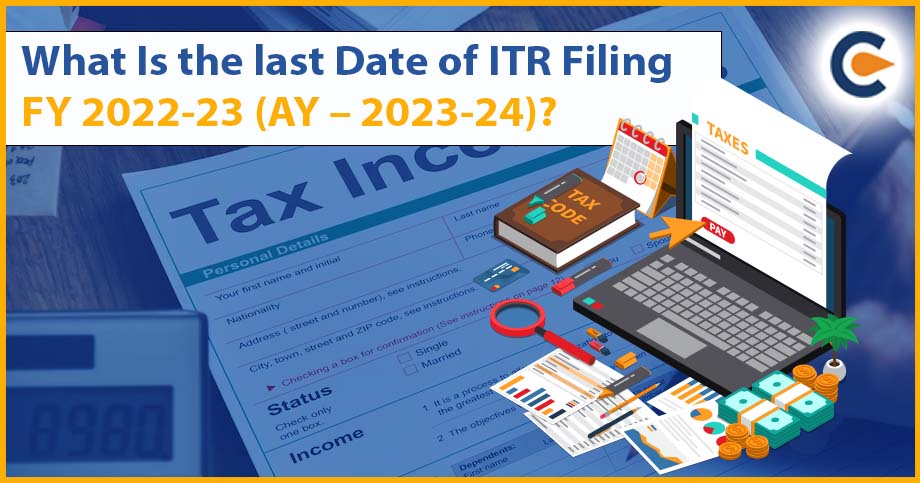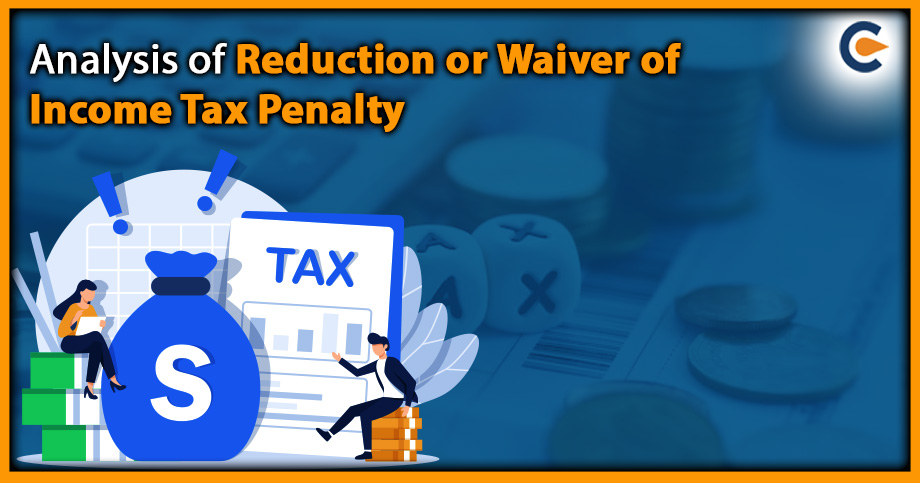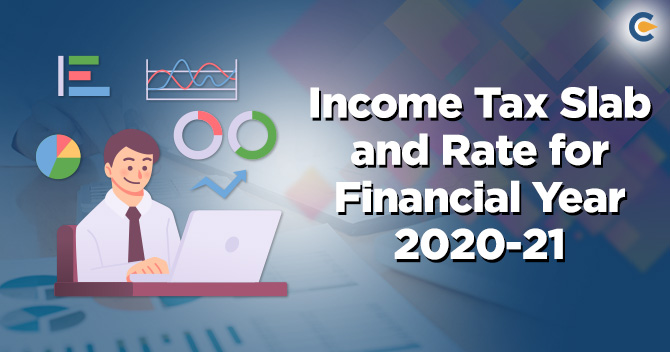The last date for ITR Filing for Annual Year 2023-24, for income made in Financial Year 2022-23, the last date to file an ITR will be 31st July. The new Assessment Year 2023-24 will start on 1st April. Generally, the due date of ITR Filing is July 31st, it is expected that the same date will be the last date for filing tax returns this year.
What Actually Is the Financial Year?
The term “financial year” refers to the corresponding year in the calendar in which money is received. In contrast to a conventional calendar year, a Financial Year begins on April 1 and ends on March 31 of the following year. In other words, tax returns must be filed during the Fiscal Year, which is the year that comes before the Assessment Year. The phrase “financial year” is what the abbreviation FY refers to.
For instance, the current Fiscal Year (FY) 2022-23 will take into account any revenue made between April 1, 2022, and March 31, 2023.
What Does An Assessment Year Mean?
The Assessment Year comes following the Fiscal Year. One must submit their income tax return within the relevant assessment year.
For revenues received between April 1, 2022, and March 31, 2023, the Assessment Year would be 2023-24, or during the Assessment Year (AY) 2023-24.
ITR Filing Due Date for FY 2022-23 (AY-2023-24)
| Taxpayer Category | Due Date |
| Individual/HUF/BOI/AOP | 31st July 2023 |
| Businesses (requiring audit) | 31st Oct 2023 |
| Businesses requiring transfer pricing reports (in case of international or specified domestic transactions) | 30th Nov 2023 |
| Revised Return | 31st Dec 2023 |
| Belated or Late Return | 31st Dec 2023 |
What Exactly Is An Income Tax Return?
Your earnings and tax payments to the appropriate authorities are both recorded on a document known as an Income Tax Return (ITR). A taxpayer’s income is used to calculate their tax due. If the return discloses that the individual overpaid their taxes for the year, the Income Tax Department will issue a refund check to the individual.
Each individual or corporation that has revenue throughout the course of a financial year is required to submit an annual return in accordance with the income tax legislation. The source of the income could come from an employment, an enterprise, property investment, profits, capital gains, interest, or perhaps another source.
An individual or a firm must submit tax returns by a specific deadline. If a tax payer fails to file their taxes before the deadline, they will be subject to a penalty.
Is It Necessary To Submit An Income Tax Return?
If your annual income is more than the amount that is free from taxation, you are required by law to submit income tax returns in India. The income tax rate is predetermined for those who are tax payers. Your prospects of securing a loan or a trip visa would be decreased by a delay in completing your returns, which would also incur penalties for late filing. You would also be subject to additional fees.
Who Is In Charge Of Filing Income Tax Returns?
According to the Income Tax Act, the responsibility for paying income tax lies only with those individuals and organizations that fall under certain income brackets. In India, the annual filing of an income tax return (ITR) is mandatory for the following types of organizations:
Any individual under the age of 59 whose yearly income exceeds Rs 2.5 lakh in a financial year. The limit is Rs. 3 lakhs for seniors (those aged 60–79), and Rs. 5 lakhs for super seniors (aged 80 and higher). It is vital to keep in mind that an estimate of the amount of income must be provided prior to taking into account the deductions that are permitted under Sections 80C to 80U and the additional exclusions that are provided under Section 10.
Any legally recognized companies that bring in money, irrespective of whether or not they made a profit for the previous fiscal year.
- Those who have overpaid their income tax and are seeking a refund.
- Individuals with assets or financial interests in businesses outside of India.
- Companies from other countries doing business in India as a consequence of treaty advent
- NRIs who earn or accumulate more than Rs. 2.5 lakh in India in a one FY.
Important Documents for Filing ITR
When you start the process of electronic filing, you need to be sure that you have all of the necessary paperwork on hand.
- Passbooks for post office savings accounts, bank savings accounts, and PPF savings accounts
- Pay slips
- Identification cards include things like Aadhaar cards and Permanent Account Number cards.
- Your company will provide you with a Form-16, often known as a TDS certificate, which documents your pay as well as any TDS that may have been deducted.
- Bank and post office interest certificates
- If the tax deducted at source is on payments besides salary, including such income earned on fixed deposits, or such other deposits, etc., in excess of the limitations prescribed by the existing tax legislation, Form-16A must be completed.
- If you recently sold real estate, you should have received a Form-16B stating the tax deducted from the sum received by you.
- Form 16C from your renter specifying any TDS deducted from the rent.
- Your yearly tax statement is Form 26AS. It details every aspect of the tax payments you’ve made using your PAN.
- When TDS is collected by your employer
- When TDS is deducted by banks
- Taxes that you have already paid in advance
- Taxes that you paid after conducting your own self-assessment
- Evidence of Deductions from Sections 80D to 80U
- Bank Statement for a Mortgage Loan
Key Factors to Consider While Filing Your Taxes for FY
- Even Without A Receipt, Expenses May Be Deducted
Regular tax payers should be aware that they are permitted to make deduction claims in FY without providing any supporting documentation. Additionally, taxpayers are required to collect as much documented evidence as possible from individual witnesses to their expenditures.
- Methodical Reporting Of Costs Is Required
By keeping accurate records of their expenditures throughout the fiscal year, often known as the FY, taxpayers may be able to reduce their tax burden. It is possible for a tax payer to miss out on significant deductions that might have a significant impact on his financial situation if the revenues are not appropriately categorized and provided within the prescribed time frame.
It is in the best interest of taxpayers to get acquainted with the process of submitting their tax returns.
Self-education is a terrific technique for taxpayers to learn more about tax payment methods online and elsewhere. There are accredited taxation courses available in the region’s colleges and secondary schools.
- Software for Efficient and Effective Tax Filing
This utility is free, simple to use, and virus-free. Taxpayers may avoid late fines by using the Free File Program made available by the Internal Revenue Service[1] (IRS).
It is required to redistribute the earnings from deposits.
Taxpayers who receive earnings via fixed or recurring deposits should seriously consider moving some of this money into their children’s bank accounts, if they have any. During a certain financial year, they will be able to save a significant amount of tax in this way.
Reminders to File Tax Returns during the Assessment Year
- While filling out tax returns, transparency is essential.
- While filing tax returns, taxpayers should be as accurate as possible regarding their prior tax payments, the forms they used to file taxes, and the receipts they obtained from the Income Tax department after electronically submitting taxes during the Assessment Year. When submitting returns electronically, you are needed to upload as a PDF any and all relevant documents, including receipts.
- It is more than conceivable for the tax refunds for a given Assessment Year to be provided on schedule if all essential papers, such as capital gains tax statements, Form 16A, and Form 26S, are in order. There are unlikely to be any complications with the transfer of tax refund payments.
E-Filing of Tax Returns
E-Filing allows taxpayers from all walks of life, including retirees and business owners, to submit their tax returns from the convenience of their own homes. When taxpayers employ the e-filing options made accessible by the Federal Revenue Service, submitting tax returns online is a speedy procedure, and they do not need to be worried about their tax return filing activities lasting weeks or months.
- Using tax return calculators is strongly recommended.
- While completing their tax returns during an Assessment Year, each and every taxpayer is strongly encouraged to make use of the online tax return calculators.
- These online tax return calculators provide accurate estimations of the tax credits and deductions that individual taxpayers may claim for the income they generate during a certain financial year.
- Calculators for filing taxes online are usually kept up to date on a regular basis & may be accessed and utilized in a time-efficient manner on mobile devices such as iPhones and Androids.
- If tax payers have a strong grasp of what the Financial Year and Assessment Year genuinely represent, the whole process of reporting taxes in the FY and claiming returns in the Assessment Year may be performed with a remarkable speed. It is common practice for the Financial Year to precede the Assessment Year, with assessments often being carried out during the Assessment Year after revenues have been made during the Financial Year.
Deadline for ITR Filing for TDS Return
According to this notion, a person (deductor) who is required to make a payment of a certain sort to another person (deductee) is required to deduct tax at source & deposit it into the account of the Central Government. The deductee whose income tax was deducted at source is entitled to get a credit for the amount that was deducted if the deductor submits Form 26AS or a TDS certificate.
Important ITR Filing Last Date for FY 2022-23
| Last Date | Type of Compliance | Particulars | Forms |
| 15th June 2022 | Advance Tax | First Installment for FY 2022-23 | Challan No./ITNS 280 |
| 31st July 2022 | ITR Filing (for non-audit cases) | ITR Filing for FY 2021-22 | Applicable ITR Form |
| 15th September 2022 | Advance Tax | Second Installment for FY 2022-23 | Challan No./ITNS 280 |
| 30th September 2022 | Tax Audit Report (other than transfer pricing) | Tax Audit Report for FY 2021-22 | Form 3CA/3CB and 3CD |
| 31st October 2022 | Transfer Pricing Report (undertaken international or specified domestic transactions) | Submission of Reports for FY 2021-22 | Form 3CEB |
| 30th November 2022 | ITR Filing for Transfer Pricing Cases | ITR Filing for FY 2021-22 (if having international or specified domestic transactions) | Applicable ITR Form |
| 15th December 2022 | Advance Tax | Third Installment for FY 2022-23 | Challan No./ITNS 280 |
| 31st December 2022 | Belated Return or Revised Return Filing | Belated Return or Revised Return for FY 2021-22 | Belated/Revised Return |
| 15th March 2023 | Advance Tax | 1. Fourth Installment for FY 2022-23 2. Single and Final Installment for Taxpayers opting for Presumptive Taxation Scheme for FY 2022-23 | Challan No./ITNS 280 |
ITR Filing Due Date for TDS Return
As per this concept, a person (deductor) who is liable to make payment of specified nature to any other person (deductee) shall deduct tax at source & remit the same into the account of the Central Government. The deductee from whose income tax has been deducted at source would be entitled to get credit of the amount so deducted on the basis of Form 26AS/TDS certificate issued by the deductor.
The ITR Filing Last Date For Filing TDS for the Financial Year 2022-2023 Are:
| Quarter Months Ending | Due Dates of Payment of TDS | Due Dates for Filing TDS |
| 30 June | 7 May, June, and July | 31.07.2022 |
| 30 September | 7 August, September, and October | 31.08.2022 |
| 31 December | 7 November, December, and January | 31.01.2023 |
| 31 March | 7 February, March, and April | 31.05.2023 |
What Happens If The Deadline For Submitting The ITR Is Missed?
- If you submit your tax return after the deadline, you must pay interest on the unpaid tax amount at the rate of 1% per month or fraction of a month under Section 234A.
- A late charge of Rs. 5,000 must be paid in line with Section 234F. If the individual’s yearly income is less than Rs. 5 lakh, the amount should be decreased to Rs. 1,000.
- If losses occurred are from the stock market, mutual funds, real estate, or any of your enterprises, you may carry them forward and adjust them with the revenue from the next year. Your tax burden will be greatly reduced as a result of this. Loss adjustment is only possible if you disclose the losses in your ITR and submit it to the income tax department before the deadline.
- You have the option of submitting what is called as a “belated return” if you miss the deadline for completing your ITR. Nevertheless, you will still be responsible for paying the late charge as well as any applicable interest, and you will not be allowed to roll over the losses towards any future adjustments. The income tax department has set the cutoff date for late returns at the 31st of December of the year before the current assessment year (unless the government decides to extend the deadline) (unless extended by the government). You have until December 31, 2023, to submit your late return for this year.
Which ITR Form Should You Fill Out?
It is possible that taxpayers will be required to fill out a number of forms, all of which may be found on the official website of the Income Tax Department. Although some of these documents are simple to fill out, others, like your financial records, can need more detailed information. The following is a simple tutorial that will help you comprehend the forms that are accessible to you:
- Sahaj or ITR – 1 must be submitted by residents (other than non-residents) of India with a total income of up to Rs. 50 lakhs, comprising revenue from Salary, income from other sources and agricultural income of up to Rs. 5 lakhs.
- ITR –2 has to be filled out by individuals and HUFs that do not have any income from the profits and earnings of a company or profession.
- ITR-3 has to be filled out by Individuals and HUFs with business or professional income should fill out this form.
If your company generates presumptive income for you, you must submit Form ITR-4 (Sugam). Persons, heads of household units, and businesses (other than limited liability partnerships) that are residents of India and have a total income of up to Rs. 50 lakh and income from business and profession that is calculated under sections 44AD, 44ADA, or 44AE are required to submit this form.
Conclusion
Income tax shall be filled by every individual or business corporation as a fee to the government of the country. It has been made very easy and free from hassles by provision of all details regarding filing of income tax, deduction of tax at source, refunds etc.
Also Read:
ITR For Businesses: Things You Need To Know
Income Tax Return E-Filing: Things You Must Know
Income Tax Returns: Which Is The Correct ITR Form For You?











